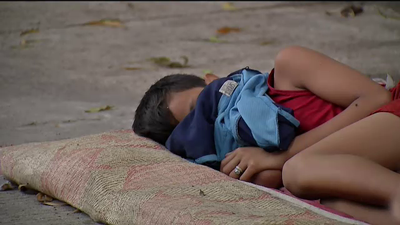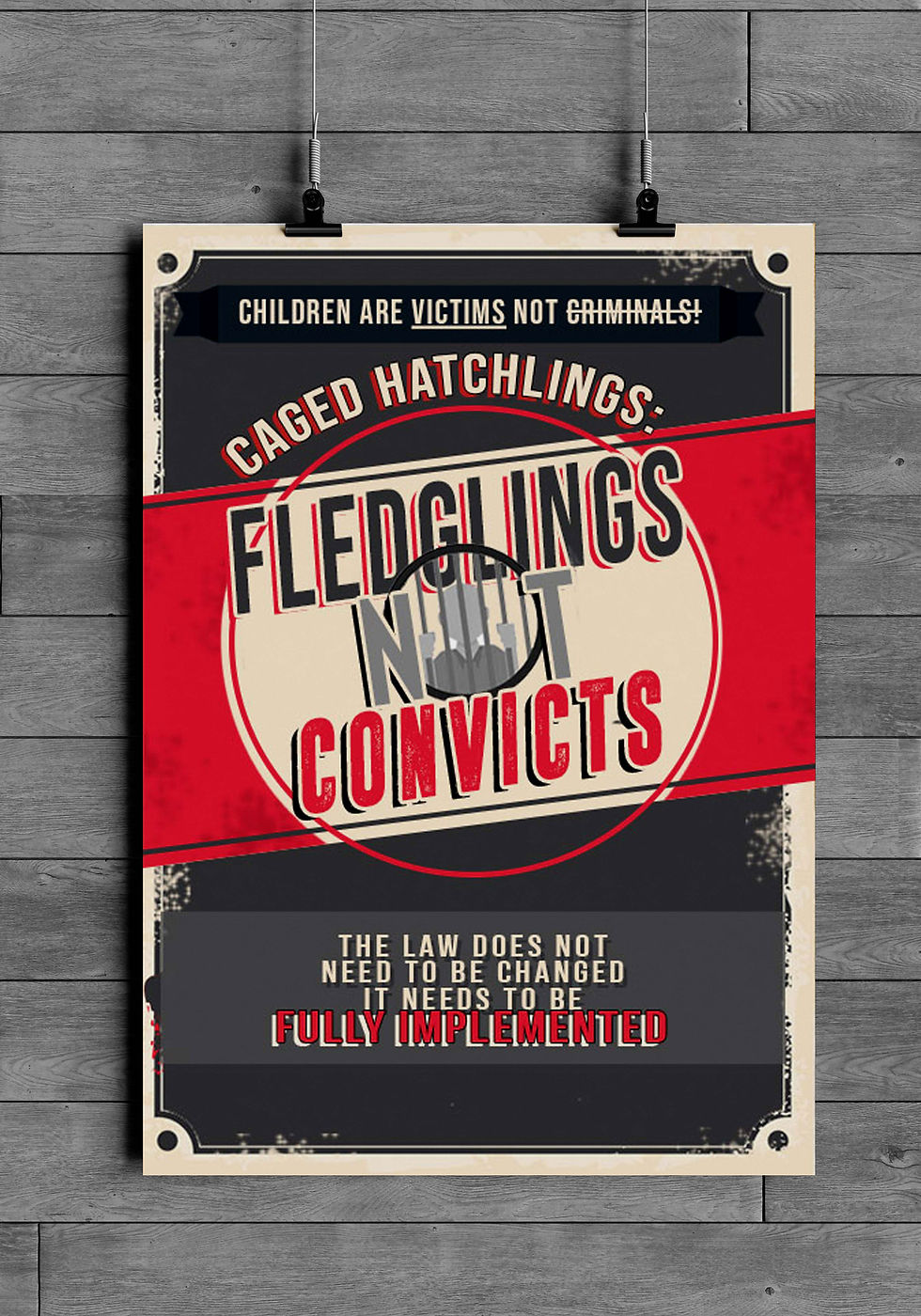Lowering minimum age of criminal liability in Philippines
- FledglingsNotConvicts

- Feb 22, 2019
- 3 min read
Updated: Mar 11, 2019
Republic Act No. 9344 or the “Juvenile Justice and Welfare Act” defines the Juvenile Justice and
Welfare System as a system dealing with children at risk and children in conflict with the law, which
provides child-appropriate proceedings, including programmes and services for prevention, diversion, rehabilitation, re-integration and aftercare to ensure their normal growth and development.
Instead of using the word “juvenile”, Philippine laws made use of the word “child”. As defined in R.A.
No. 9344, “Child” is a person under the age of eighteen (18) years. While “Child at Risk” refers to a child
who is vulnerable to and at the risk of committing criminal offences because of personal, family and social
circumstances. Some of the examples mentioned in the law are: being abandoned or neglected, and living
in a community with a high level of criminality or drug abuse.
“Child in Conflict with the Law” or CICL on the other hand refers to a child who is alleged as, accused
of, or adjudged as, having committed an offence under Philippine laws.
A child can commit an act or omission whether punishable under special laws or the amended Revised
Penal Code which is referred to as an “Offence”. Under Republic Act 10630, offences which only apply to a
child and not to adults are called “Status Offences”. These shall not be considered as offences and shall not
be punished if committed by a child. Examples of status offences include curfew violations, truancy,
parental disobedience and the like.
(Read overview of Republic Act. No.9344 https://www.unafei.or.jp/publications/pdf/RS_No101/No101_17_IP_Philippines.pdf)

The House of Representatives initially proposed lower minimum age of criminal liability to 9 years old but on January 23, 2019, the lawmakers revised the version of House Bill no. 8858 wherein they raised it to 12 years old. The approved substitute bill amends Republic Act (RA) 10630 which states the minimum age of criminal liability at 15 – but allows children as young as 12— to be detained in youth care facilities such as the “Bahay Pag-asa” for serious crimes that include murder, rape, and homicide, among others. RA 10630 previously amended RA 9344 or the “Juvenile Justice and Welfare Act of 2006” which states that the age of criminal liability is 15. They also changed the term "criminal responsibility" to "social responsibility". The lawmakers are making the young the focus in criminal system.
House Bill 8858 highlights:
Children In Conflict with the Law(CICL) who are less than 12 years old will be brought back to their guardians/parents but still be engage in community-based intervention. Those who are below 18 years old at the time of the committed crime will be participating an intervention and diversion program. The punishment to be pressed upon CICL would always be 2 degrees lower to an adult committed the crime. If the penalty of the crime committed by the child is the same as life imprisonment, then CICL would undergo 12 years of imprisonment. If crime committed has a penalty equivalent to 6 years imprisonment, exploiters of CICL would be subjected to have 12-20 years behind bars.
The CICL would participate to training centers if the child who reach 18 years old did not make improvement. CICL would only be released if they reach 25 years old. The Department of Social Welfare and Development (DSWD), the Bureau of Corrections, and the Technical Education and Skills Development Authority will be handling the said camp. Two agricultural training facilities and two technical training centers would be put up in Luzon, the Visayas, and Mindanao, with separate facilities for males and females. Bahay Pag-asa would house children nine years of age and above but below 18 years old who are committed for rehabilitation or awaiting court disposition of their cases.
For the civil damages caused by their child, parents will be held accountable except if they prove in court that they provided proper guidance over the CICL to discipline them from doing criminal acts.
Aside from the CICL, their parents would also undertake a mandatory program. Nevertheless, the parents who don't take part in the said program, they may face 20 days up to 60 months imprisonment, except for valid reasons.
Those people who use children for committing crimes would face 12 to 20 years in prison if the crime committed by the CICL has a punishment equivalent to 6 years or less. If the punishment is more than 6 years in prison, the exploiter of the CICL would face life imprisonment or up to 40 years in prison. When the initial intervention program is finished, a social welfare worker would evaluate of the program is effective in terms of physical and mental issues, substance abuse, and family issues of the CICL.







Comentarios